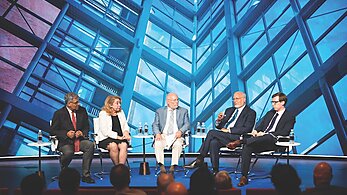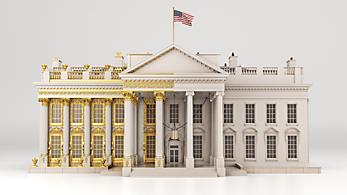David’s passing is felt deeply within the Institute, among those who advance classical liberal values worldwide, and by so many across the breadth of the political and philosophical spectrum who appreciated his principled and sharp insights—whether they agreed with his point of view or not. David’s influence in mainstreaming libertarian ideas and policy solutions is evident in tributes published throughout the media, from the New York Times to the Washington Post. David also did much to create and perpetuate Cato’s most defining attribute—its adherence to principle. And this itself is a reflection of the dedication to libertarian principles that he exhibited in his own life.
As one final example of his dedication to Cato and liberty, David died with his boots on: continuing to work and come to the office until he was unable to do so only two weeks before he passed away. We were blessed during this time with continuing opportunities for conversation and debate, as well as the chance to seek his counsel as needed. David even delivered a powerful speech on Cato’s history and importance at the last all-staff meeting he attended in May.
But David’s final public speech was a presentation he delivered to the Students for Liberty’s international LibertyCon conference in February. And while I’m tempted to use this letter to highlight the contributions David made to policy during his 40 years at Cato, his speech to the Students for Liberty that day reflected so much of his best: optimism and perspective for all we continue to achieve, balanced with a healthy concern for today’s threats to liberty; a willingness to call out those threats regardless of from where they’re emanating; and a lifetime of success in bringing young people to the ideas of liberty and the philosophy of libertarianism.
He reminded us that while we often feel like we’re on the road to serfdom, in David’s own lifetime citizens of the United States lived with military conscription, 90 percent marginal income tax rates, sodomy and obscenity laws, Jim Crow laws, wage and price controls, and entry into transportation and communications markets that was controlled by the government. He lived to see all these things end. Meanwhile, the Iron Curtain collapsed, and the spread of property rights and market institutions to China, India, and parts of Latin America and Africa helped lift a billion people out of extreme poverty.






